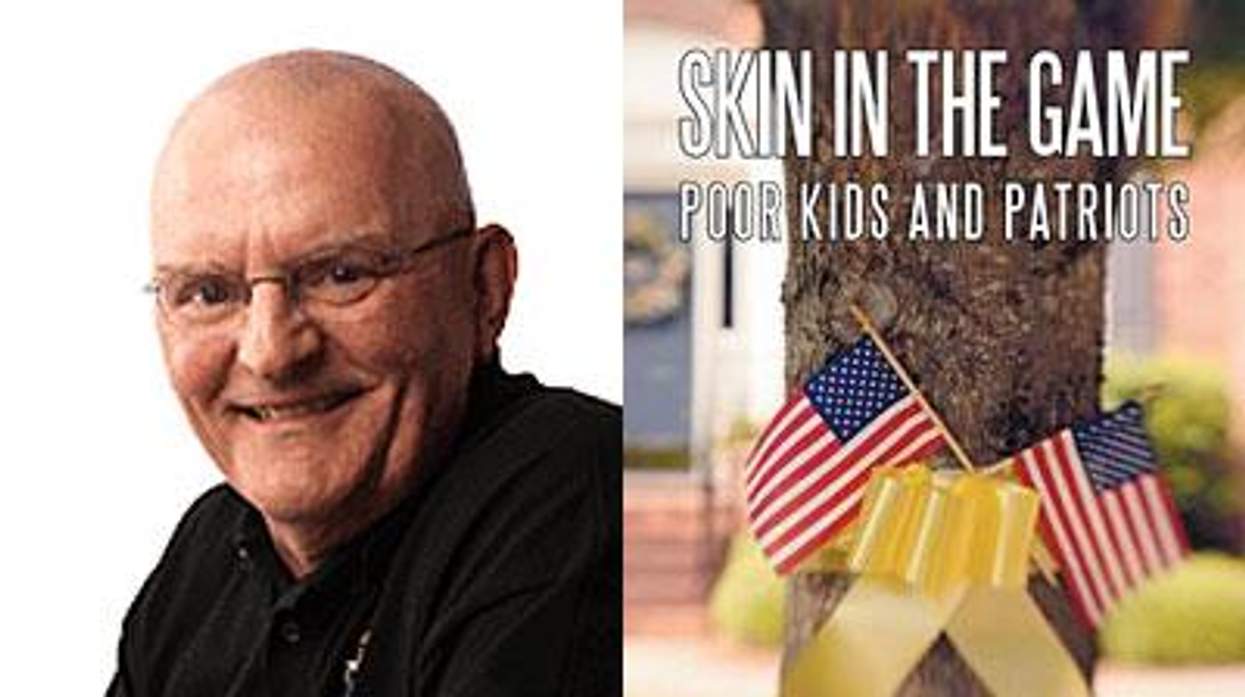There is no doubt that gay and lesbian service members were treated as second-class citizens under the military's "don't ask, don't tell" policy. In his book Skin in the Game: Poor Kids and Patriots, retired Army major general Dennis Laich, who fought closely alongside the Servicemembers Legal Defense Network and other advocates to repeal the discriminatory law, clearly identifies that not only were gay and lesbian service members, but indeed the entire force, treated badly during the wars in Iraq and Afghanistan as a result of the military's all-volunteer force structure. He asserts that the all-volunteer force is really a mercenary military made up of poor kids and patriots from the third and fourth socioeconomic quintiles of our country, while the first socioeconomic quintile is AWOL.
General Laich lays out a compelling argument around three questions: Is the all-volunteer force working? Will it work in the future? What if we had a war and no one showed up on our side? He frames answers to these questions around fairness, efficiency, and sustainability. In addition to outlining the injustice and discrimination -- both overt and subtle -- directed at gay and lesbian service members, Laich lays bare other broader injustices, policy violations, inconsistencies, and hypocrisies exerted by the Pentagon to fight two long wars and protect its all-volunteer force concept. These include multiple deployments, unprecedented use of civilian contractors, enlistment and reenlistment bonuses, lowered enlistment standards, the prescription of psychotropic drugs, aggressive recruitment of noncitizens, and stop-loss.
Make no mistake. All of these policies and practices contributed to the current crises facing the Pentagon, service members, and their families: suicides, domestic violence, divorce, PTSD, drug (prescription and illegal) abuse, alcohol abuse, veteran homelessness, veteran unemployment, and an unprecedented backlog at Veterans Affairs.
General Laich concedes that populating military forces is often difficult in democracies, particularly one as large and diverse as the United States. But he courageously asserts that most Americans view their military in general and the way it is staffed in particular through a lens of fear, apathy, ignorance, and guilt. This leads to a kind of limited-liability patriotism -- yellow ribbons on cars and around trees, American flags on lapels, and "thank you for your service" encounters -- that sometimes remind those who serve just how few of us have any real skin in the game.
His analysis goes beyond social injustice. He examines the cost of the all-volunteer force and cites studies from D.C. think tanks and the Pentagon that illustrate how the cost of a large standing volunteer military is financially unsustainable. Those studies project that by 2039 personnel costs will consume the entire defense budget. Generous pay scales, retirement after 20 years of service, and world-class health care for service members, retirees, and their families are the principal drivers of these personnel expenses -- expenses that contribute to a U.S. defense budget that is larger than that of the next 14 countries in the world combined.
For those who fought long and hard to repeal "don't ask, don't tell," worked against the so-called Defense of Marriage Act, and are now engaged in the fight to end the ban on open military service by transgender people, let us not forget that there is an equality fight in our armed forces beyond these battles. And in some ways it's a much more difficult one. General Laich reminds us that it's time to start the conversation, and everyone affected by the military needs to be a part of it. In other words, every American.
ZEKE STOKES is the former communications director for Servicemembers Legal Defense Network, a leading organization in the fight to repeal "don't ask, don't tell" and end the Defense of Marriage Act. Follow him on Twitter @zekestokes.




































































Charlie Kirk DID say stoning gay people was the 'perfect law' — and these other heinous quotes